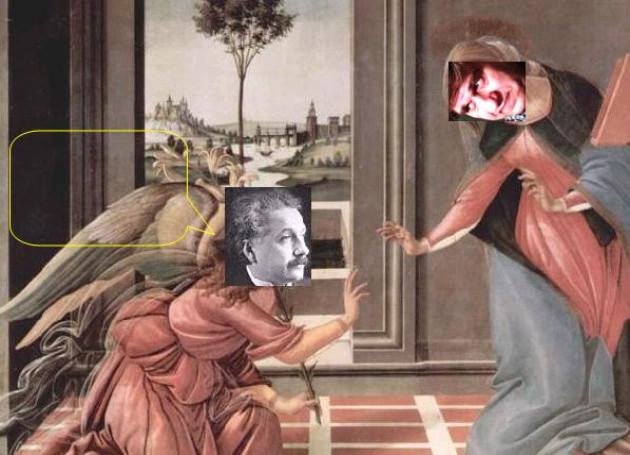| Adapted for the Internet from: Why God Doesn't Exist |
The majority of philosophers most often define the word object in terms of its properties, specifically in terms of the ability
of humans to touch and see it or to move it around:
- “ that which is perceptible by the senses, especially by vision or touch’. [1]
“ …by a rigid body we mean one which, when placed in two positions successively, can
always be made to appear the same to us as before.” (p. 11) [2]
“ Isolated material particles are abstractions, their properties being definable and
observable only through their interaction with other systems.” [3]
This particular notion or manner of defining the word object is known as the bundle’ theory of objecthood. It suggests that
an object is merely a listing of its properties and absolutely nothing without them. Locke exemplifies for us:
- “ the idea which an Englishman signifies by the name swan, is white colour, long neck,
red beak, black legs, and whole feet, and all these of a certain size, with a power of
swimming in the water, and making a certain kind of noise, and perhaps, to a man
who has long observed this kind of birds, some other properties: which all terminate
in sensible simple ideas, all united in one common subject” (Bk. II, Ch. 23) [4]
Locke’s ‘subject’ includes practically every word in the dictionary since every word conveys at least one property or attribute,
the most conspicuous being the notion of individuality, unity, or oneness. Is the subject of a sentence the same thing as an
object?
Dissidents known as substance ontologists prefer to associate objects with the now ancient notion of substantive, intuitively
something corporeal, physical, a body. In the absence of attributes, a swan is just a ‘bare particular’, a substrate stripped of
all its qualifiers.
- “ Bare particular is what a substance is called when considered independently of
its properties. [5]
Locke analyzes this issue as well:
- “ we suppose them existing in and supported by some common subject; which support
we denote by the name substance, though it be certain we have no clear or distinct
idea of that thing we suppose a support… substance is supposed always something
besides the extension, figure, solidity, motion, thinking, or other observable ideas,
though we know not what it is.” (Bk. II, Ch. 23) [6]
- Hence, whereas the bundle theorist argues that the color white is ‘owned’ by this swan and is an integral part of its description,
the substance theorist argues that the word swan refers to an object in general irrespective of such qualifiers. A ‘bare particular’
is simply a new term for the notion Locke had trouble identifying and which he diversely referred to as substratum, substantia,
standing under, upholding, etc. The mysterious substrate that remains behind after we remove all attributes continues to be a
mystery and the subject of intense debates.
- “ Anything tangible having existence (living or nonliving)” [7]
So what have the philosophers concluded after 3000 years? Do they know what an object is? Let's start with the bundle
theorists and see all the versions these bozos came up with.
| Is an object a bundle of properties? |

| Look carefully, and you will see the energy between our hands. Why... you can almost touch it! Do you feel it? |
- Module main page: After 3000 years, the idiots of Philosophy still cannot tell you what an object is!
This page: Is an object a bundle of properties?
Pages in this module:
- 1. Frege says that a variable is an object
2. Russell says that an object is that which is one
3. Lavoisier says that an object is that which cannot be destroyed
4. Newton says that an object is that which has mass and occupies space
5. Plato says that an object is that which is ideal
6. Bohr says that an object is not an object without an observer
7. Elder says that an object is that which is made of parts
- ________________________________________________________________________________________
- Copyright © by Nila Gaede 2008
